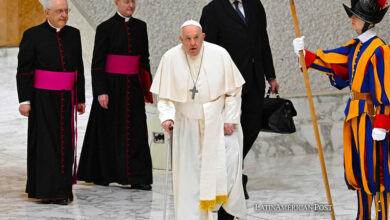Argentina’s Milei Again Seeks Radical Economic Overhaul with New Bills

Argentine President Javier Milei’s government will attempt to pass a critical package of economic reforms in Parliament for the second time, aiming to deregulate the nation’s struggling economy.
In a bid to reshape Argentina’s faltering economic landscape, the government led by libertarian President Javier Milei is gearing up for a crucial parliamentary session. Starting today, the Argentine Congress will discuss reforms the ruling party deems essential for progressing toward deregulating the troubled economy. This session marks the administration’s second attempt to secure approval for these reforms, highlighting Milei’s challenges in a politically fragmented landscape.
Legislative Momentum Gains Ahead of Sweeping Reforms
The renewed legislative effort follows a positive preliminary opinion from the committees in the Chamber of Deputies last Thursday. The proposed law, named “Bases and Starting Points for the Freedom of Argentines,” aims to set the groundwork for sweeping changes across various sectors. The debate, scheduled to start tomorrow, is expected to extend into Tuesday, given the comprehensive nature of the discussions, which will also cover a proposed fiscal reform.
Both legislative initiatives have reached the floor after lengthy negotiations between Milei’s far-right party, La Libertad Avanza—which holds a minority in the Deputies—and the so-called “dialogue opposition” (Propuesta Republicana, Unión Cívica Radical, and Hacemos Coalición Federal). With their support, the government hopes to secure passage despite resistance from leftist factions and the Peronist front, Unión por la Patria.
In a televised statement on Sunday, Milei expressed optimism about the upcoming session, thanks to the efforts of Interior Minister Guillermo Francos, who has been instrumental in advancing the project. The negotiation process has required the government to scale back some aspects of its original proposal, introduced shortly after Milei assumed the presidency at the end of 2023.
Foundational Legislation Targets Economic Deregulation
The core of Milei’s governmental program lies in this ‘base law,’ coupled with a drastic fiscal adjustment ‘shock’ plan and an emergency decree (DNU 70/2023) signed last December. These measures are primarily focused on economic deregulation, reflecting Milei’s commitment to a libertarian overhaul of Argentina’s economic policies.
The Chamber generally approved the initial draft of the Bill of Deputies on February 2. However, facing inevitable defeat in a detailed, article-by-article vote and anticipated rejection in the Senate, the ruling party sent the proposal back to the committees. This strategic retreat allowed for further negotiations with certain opposition parliamentarians and provincial governors—who wield significant political influence in the Senate and have been at odds with Milei over severe cuts in federal transfers to the provinces.
The revamped proposal now features 232 articles, significantly pared down from the original 664. The first article declares a public emergency in administrative, economic, financial, and energy matters for one year, granting the executive branch considerable—but reduced from initial ambitions—delegated powers.
The reform package also allows for state reform, enabling the privatization of a dozen companies (originally forty), and includes sections aimed at promoting registered employment, labor modernization, and adjustments to the retirement system. Additionally, it emphasizes energy sector reforms to boost hydrocarbon exploitation and renewable energies alongside a regime of incentives for significant investments.
In tandem with these discussions, deputies will also debate the Fiscal Palliative and Relevant Measures Bill, which proposes a capital amnesty, adjustments to the income tax on wages, and a tax and customs moratorium.
Anticipated Marathon Session Amidst Growing Opposition
The session is expected to be a marathon event, with leftist parties and labor unions planning protests outside the Parliament. If the Deputies approve, the bills will move to the Senate, where the ruling party will face even more significant challenges in securing final passage.
Also read: Colombian Government Reports Huge Losses in Victim Fund 2018-2020
The debate unfolds against severe economic contraction, natural wage declines, persistently high inflation, and increasing social and labor unrest over some aspects of Milei’s austerity measures. As Argentina grapples with these economic and political complexities, the outcome of this legislative push will significantly influence the country’s path forward, testing the resolve and adaptability of Milei’s ambitious economic vision.




